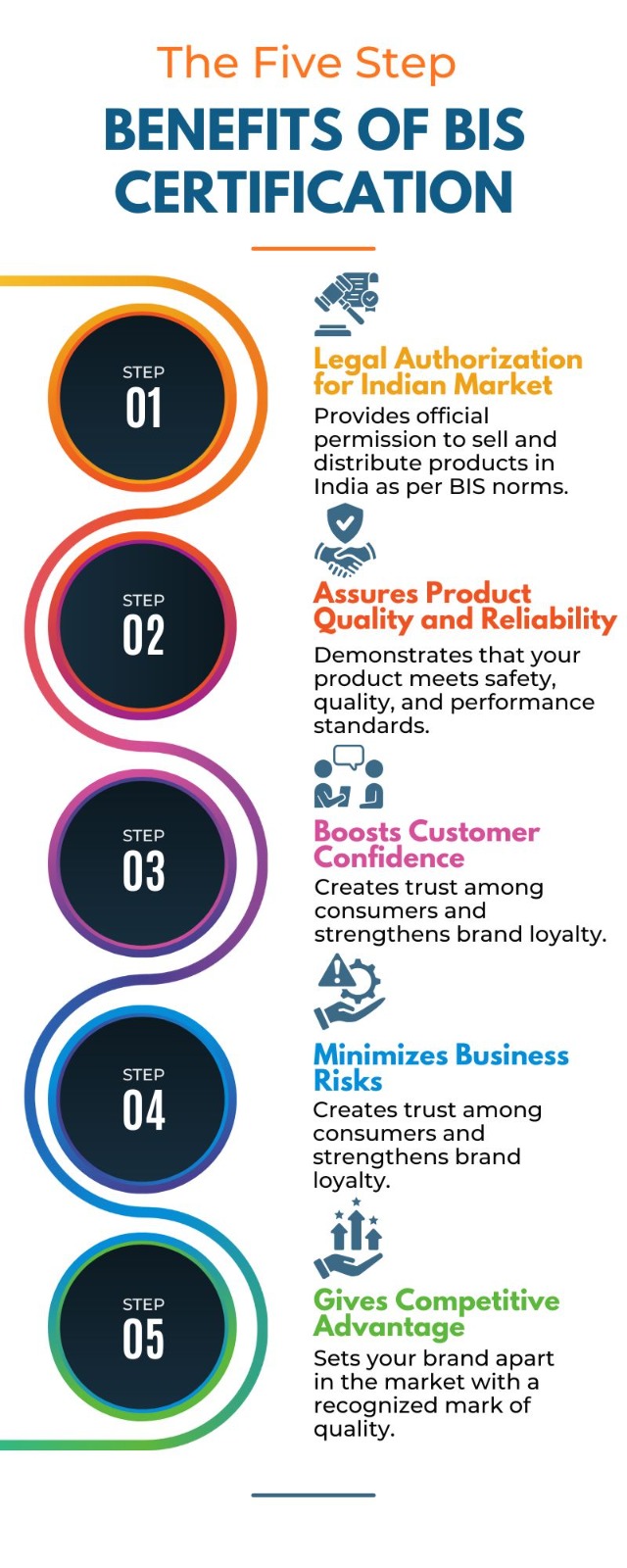Get A Quote
Start-up Registration Scheme in India
Looking to register your startup? EVTL India, a trusted startup registration consultant, assists entrepreneurs and new businesses in obtaining official recognitionunder the Startup India initiative. Our experts handle the entire process — from eligibility assessment and document preparation to final certification — ensuring full compliance with government norms. With professional guidance, transparent support, and 24/7 consultation, we make your startup registration journey smooth, fast, and hassle-free, helping you focus on growing your business.

Startup Registration - Introduction
India is witnessing a major transformation in entrepreneurship. From small-town innovators to global disruptors, startups are changing how India does business. However, many entrepreneurs struggle with complex compliance rules, funding challenges, and lack of mentorship.
To empower these innovators, the Government of India launched the Startup India Scheme on 16 January 2016, under the Department for Promotion of Industry and Internal Trade (DPIIT), Ministry of Commerce and Industry.
This initiative aims to build a strong ecosystem for innovation and entrepreneurship, enabling startups to grow, generate employment, and drive economic progress. It helps young entrepreneurs overcome hurdles and access funding, tax benefits, and expert mentorship.
Today, Startup India has become a driving force behind India’s position as the third-largest startup ecosystem in the world.
What is the Startup India Scheme?
Startup India is a flagship program of the Indian Government that supports entrepreneurs and innovators. It provides a structured platform for registration, recognition, and growth.
Through DPIIT recognition, startups get access to numerous benefits such as:
- Simplified regulatory compliance
- Tax exemptions
- Financial assistance through seed funding
- Fast-tracked intellectual property rights (IPR) filing
- Mentorship and networking support
The vision of this program is to make India a global center for innovation and job creation by encouraging young people to build their own ventures.
Startups recognized under this scheme are listed officially by DPIIT and can avail multiple central and state-level benefits through the Startup India portal
Objectives of Startup India
The Startup India Scheme was launched with a clear vision to transform India into a country of job creators rather than job seekers. Its main objectives are:
- Simplification and Handholding : To make it easier for startups to register, comply, and operate with minimal government interference.
- Funding Support and Incentives : To provide easy access to capital through government-backed funds and grants.
- Industry-Academia Collaboration : To promote innovation and research through collaborations with universities, R&D labs, and incubators.
- Promoting Innovation and Entrepreneurship : To encourage individuals with creative ideas to turn them into successful business ventures.
- Ease of Doing Business : To create a business-friendly environment that nurtures startups across all sectors.
Eligibility Criteria for Startup India Registration
To register under the Startup India Scheme and obtain DPIIT recognition, the following eligibility conditions must be met:
- The business must be registered as a Private Limited Company, Limited Liability Partnership (LLP), or Partnership Firm in India.
- The startup must be less than 10 years old from the date of incorporation.
- The annual turnover must not exceed ₹100 crore in any financial year.
- The business must focus on innovation, development, or improvement of products, services, or processes.
- The startup should not be formed by splitting or reconstructing an existing business.
- It must obtain recognition from DPIIT to avail all Startup India benefits.
Note : DPIIT recognition can now be applied through the National Single Window System (NSWS), allowing one-stop access to multiple government approvals.
Benefits of Startup India Scheme
Recognized startups under the Startup India Scheme receive a wide range of benefits from the government. Let’s understand them in detail:
- Tax Benefits
- 100% income tax exemption for 3 consecutive years (within the first 10 years of incorporation) under Section 80-IAC of the Income Tax Act.
- Capital gains exemption under Sections 54GB and 54EE.
- Simplified Compliance
- Startups can self-certify compliance under 6 labour laws and 3 environmental laws.
- No government inspection for the first 3 years for self-certified startups.
- Funding and Financial Assistance
- Access to the Fund of Funds (₹10,000 crore) managed by SIDBI to promote investment.
- The Startup India Seed Fund Scheme (SISFS) launched in 2021 provides:
- Up to ₹20 lakh for prototype development.
- Up to ₹50 lakh for scaling or commercialization.
- Intellectual Property Support
- 80% rebate on patent filing fees.
- Fast-track patent examination.
- Legal and financial support through empaneled facilitators.
- Networking and Mentorship
- Access to national startup events, incubation programs, and mentorship by industry experts.
- Collaboration opportunities through Startup India Innovation Week and Global Startup Summit.
- Government Tender Benefits
- Relaxation in EMD (Earnest Money Deposit) and turnover criteria for government tenders.
- Priority access to public procurement and government projects.
Step-by-Step Registration Process
-
Step 1: Business Incorporation
First, register your business as a Private Limited Company, LLP, or Partnership Firm through the Ministry of Corporate Affairs (MCA) portal. Obtain your Certificate of Incorporation, PAN, and TAN. -
Step 2: Create an Account on Startup India Portal
Visit official government website and click on “Register.” Enter your name, email ID, and business details to create your profile. -
Step 3: Apply for DPIIT Recognition
Log in and click “Get Recognized by DPIIT.” Fill in all required details about your business, innovation, and future plans.Upload the necessary documents and submit your application. -
Step 4: Verification
The DPIIT reviews your application and verifies your eligibility. -
Step 5: Receive DPIIT Certificate
Once approved, you’ll receive a DPIIT Recognition Certificate confirming your startup status.This certificate gives you access to all Startup India benefits.
Documents Required for Startup India Registration
To complete your Startup India registration, you’ll need the following documents:
- Certificate of Incorporation or Partnership Deed
- PAN Card of the business entity
- Proof of business address (rent agreement or ownership proof)
- List and details of directors or partners
- A brief write-up about business innovation or uniqueness
- Bank account details of the company
- Website URL or pitch deck (if applicable)
- Authorization letter (if consultant applies on your behalf)
Latest Update: Startups can now upload all documents directly through the NSWS portal, ensuring faster approval and real-time tracking.
DPIIT Recognition and Its Importance
The Department for Promotion of Industry and Internal Trade (DPIIT) recognition is crucial for every startup under this scheme.
Once you get recognized, your business becomes eligible for government funding, tax exemptions, and legal benefits.
Key Advantages of DPIIT Recognition:
- 3-year income tax holiday under Section 80-IAC.
- Easier access to funds through SIDBI and seed funding programs.
- Eligibility to participate in government tenders and procurement.
- Self-certification under labour and environmental laws.
- Fast-track IPR protection and financial incentives for patent filing.
Tax Exemptions and Incentives for Startups
DPIIT-recognized startups can enjoy multiple financial advantages:
- 3-Year Tax Holiday: 100% exemption on income tax for three consecutive years (within the first ten years).
- Capital Gains Exemption: Exemption for investors who reinvest capital gains in eligible startups.
- GST Exemption: Startups under the threshold limit are exempt from GST registration.
- Reduced Compliance Costs: Self-certification under major laws reduces compliance burden.
- Funding Incentives: Eligible startups can access the Startup India Seed Fund for early-stage support.
Latest Updates in Startup India Scheme 2025
Here are some new updates introduced in 2025 to make the Startup India Scheme more efficient and accessible:
- Integration with NSWS: Startups can now apply for multiple approvals (MSME, FSSAI, GST, etc.) through one dashboard.
- Faster DPIIT Recognition: DPIIT now processes recognition applications within 7 working days.
- GST Exemption: Startups under the threshold limit are exempt from GST registration.
- Green Startup Promotion: Startups working in sustainable and clean technologies get priority funding.
- Women Entrepreneur Incentives: New funding programs launched for women-led startups with relaxed eligibility.
- One District One Startup (ODOS): State-level incubation support for startups in smaller districts.
- Startup India Innovation Week 2025: New collaborations with global accelerators for market expansion.
Conclusion:
The Startup India Scheme is a game-changer for Indian entrepreneurs. It opens the door to innovation, growth, and recognition at both national and global levels. By registering under this scheme, startups can enjoy tax benefits, funding access, and a supportive ecosystem that helps them scale faster.
At EVTL India, we specialize in Startup India Registration and DPIIT Recognition Consultancy. Our experts ensure your startup gets recognized quickly and compliantly. From understanding eligibility to preparing documents, filing applications, and following up for approvals — EVTL India handles everything for you.
We also keep you updated with the latest Startup India 2025 regulations, government schemes, and funding opportunities. Whether you’re launching your first business or scaling up your innovation, EVTL India is your trusted partner in achieving Startup India recognition and success.
Frequently Asked Questions (FAQ)
Our Services
News & Updates









